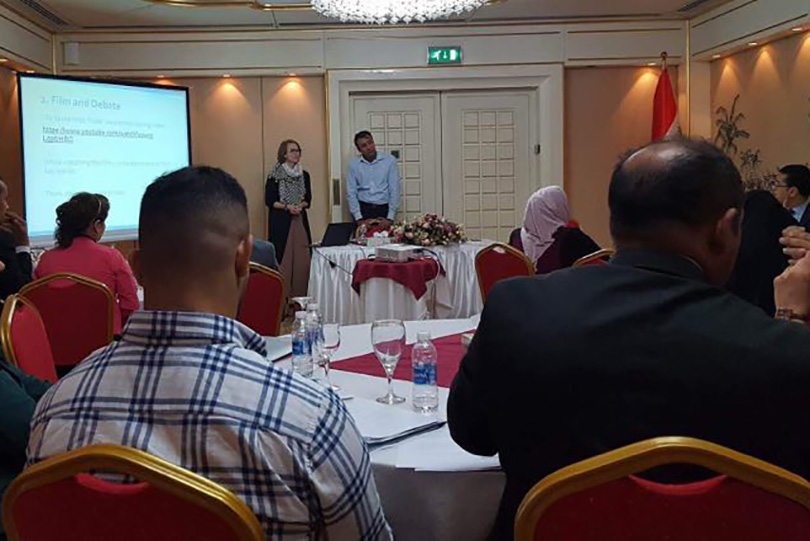By: Suzan Al-Shammari
Annabaa Dialogue Forum participated in two specialized media workshops, which were organized by the United Nations last week.
During the two days of deliberations, the first workshop tackled the means to make the national reconciliation in Iraq a success, while the second workshop concentrated on the ethical principles of the international organization in warring states.
The two workshops were attended by groups of media personnel and non-governmental organizations’ activists.
Director of the Forum, writer and journalist Ali al-Talakani, stated that the participation in such workshops stresses the importance of the media’s role in consolidating the concept of national reconciliation.
“We worked on this project more than once with the United Nations”, he added.
“If the national reconciliation policy and other approaches proved their relative success in restoring sort of the peace to the Iraqi society, that suffered, during the past three years, of violence and terrorism, the efforts remained at shortage, due to the dissimilarity of political trends, particularly the opposition, which is regarded the base of the problem”.
UN representative for the organization’s affairs Vany de Twit stated that the “UN projects in the formation of the army, raising the standards of education and relief affairs were positive during the past year after 2003”, pointing that “the private projects for national reconciliation were a failure despite all effort exerted”.
He added that “the discussions held during the past four months reached to alienate the authority’s personalities in Iraq from the national reconciliation project and the coming plans will concentrate on the citizens to support these goals away from political jargon, as well as holding seminars and workshops that will cover the real situation of the Iraqi people”.
A number of independent media personalities took part in the workshops, where it was agreed that the political personality was the pivot of the continued differences in the country, as well as the center for the conflicts for personal gains.
The workshop proved that the Iraqi citizen is fully aware that the conflict is not sectarian, as much it is political covered with pseudo-sectarian covers.
On the other hand, the second workshop discussed the principles and ethics of the UN personnel and the basic criteria to select the workers within the non-governmental organizations in Iraq.
UN representative for Ethical Control Jennifer White pointed that “most of the warring states witness cases of immigration and displacement that need assistance, either by the UN personnel or cooperating organization”.
“Due to discovering cases of physical or services abuses, though trying to assist, in a number of countries covered by the United Nations, it was necessary to follow up these cases in a manner that will guarantee the trust in the actions of the United Nations”, she confirmed.







Comments